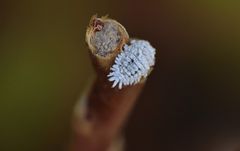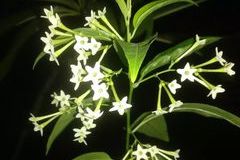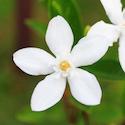Pests and diseases
These are all articles in the sub-category Pests and Diseases

Mealybugs are one of the most common Jasmine pests. They are insects belonging to the Pseudococcidae family and Coccoidea superfamily, where also scales are part of. Their physical appearance mimics soft cotton balls, when seen from a short distance, and their bodies are oval-shaped with a soft and waxy cover. They may seem harmless, but they are actually a very harmful pest, that will slowly but progressively kill your plant by feeding on the sap of our Jasmine plant. Not only they are avid feeders of the essential juices of the Jasmine plant, but also, they are keen reproductive insects (able to reproduce asexually without mating), which will deposit thousand of eggs throughout our Jasmine plant. Their average life cycles and egg deposition ranges from 100-200 eggs in cottony egg sacs over a fortnight period. They attach their egg sacs to the leaves or flowers of the Jasmine plant. Mealybugs are bugs found in colonies spread out in the Jasmine plant, usually found in the crown of the Jasmine plant, in branch crotches, stems near the soil and between the stems and the flower buds. Mealybugs, thrive in the warm weather zones, environmental conditions that favour their feeding habits and honeydew deposits in the leaves and stems, which lead to the growth of sooty mould (just like aphids and scales do).

Cestrum nocturnum, most commonly known as night-blooming Jasmine, is an exquisite Jasmine plant variety, belonging to the Solanaceae family and endemic from the subtropical regions of West India and now optimally growing in these temperated regions around the world where the average temperature is warm and the winter temperature doesn’t go below 12 degrees. The night-blooming jasmine plant is a unique jasmine variety, which yellow and/or white flowers, produce a superb and exquisite scent (known as one of the strongest in the world) when they open up at night (as this plant will have its flowers opening at night, releasing the sweet scent and will close up during the day).
